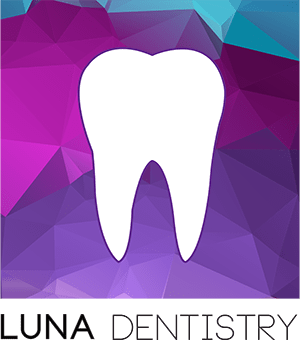Throbbing Pain After Dental Implant: What You Need to Know

Have you ever experienced throbbing pain after a dental implant and wondered if it was normal? You’re not alone! Dental implants are a common and effective solution for missing teeth, but sometimes, post-implant discomfort can cause concern.
This article will explore the causes, solutions, and when to see your dentist in Richmond about that throbbing pain after a dental implant.
What is Throbbing Pain After a Dental Implant?
Q: What exactly is throbbing pain after a dental implant?
A: Throbbing pain after a dental implant is a pulsating sensation around the implant site. It’s like your mouth saying, “Hey, something’s happening here!” This pain can range from mild to severe and might be accompanied by swelling or redness.
Q: Is throbbing pain normal after getting a dental implant?
A: Some discomfort is expected after a dental implant procedure. However, if the pain is intense or lasts longer than a few days, it could indicate an issue that needs attention. In such cases, visiting a Richmond dentist is crucial to ensure everything is healing correctly.
Causes of Throbbing Pain After a Dental Implant
Q: What causes throbbing pain after a dental implant?
A: Several factors can contribute to pain after a dental implant, including:
- Infection: Just like any surgical procedure, dental implants risk infection. If bacteria invade the implant site, they can cause inflammation and pain.
- Implant Failure: Although rare, sometimes the body rejects the implant, leading to pain and discomfort.
- Nerve Damage: During the procedure, nerves around the implant site might get irritated, resulting in throbbing pain.
- Sinus Issues: For implants placed in the upper jaw, the procedure can sometimes affect the sinuses, causing pain.
Q: How can I tell if my throbbing pain is due to an infection?
A: Signs of infection include persistent pain, swelling, redness, and sometimes fever. If you notice these symptoms, it’s time to see a dentist in Richmond. They can prescribe antibiotics or other treatments to address the infection.
Managing Throbbing Pain After a Dental Implant

Q: What can I do to manage pain after a dental implant?
A: Here are some tips to help manage the pain:
- Over-the-Counter Pain Relievers: Medications like ibuprofen can help reduce pain and inflammation.
- Cold Compress: Applying a cold compress to the outside of your face can reduce swelling and numb the pain.
- Rest: Take it easy and avoid strenuous activities that might aggravate the pain.
- Follow Post-Op Instructions: Your Richmond dentist will provide specific aftercare instructions. Following these guidelines can speed up your recovery.
Q: When should I see my dentist in Richmond for throbbing pain?
A: If the pain is severe, persistent, or accompanied by signs of infection, schedule an appointment with your Richmond dentist immediately. They can assess the situation and provide the necessary treatment to alleviate pain.
Preventing Throbbing Pain After a Dental Implant
Q: How can I prevent throbbing pain after a dental implant?
A: Prevention is always better than cure. Here are some steps to avoid post-implant pain:
- Choose an Experienced Dentist: Ensure your procedure is performed by a skilled and experienced dentist in Richmond.
- Maintain Good Oral Hygiene: Brush and floss regularly to keep your mouth clean and prevent infections.
- Avoid Hard Foods: Stick to soft foods during the healing process to avoid putting pressure on the implant.
- Attend Follow-Up Appointments: Regular check-ups with your Richmond dentist can catch potential issues early.
Q: Are there any foods I should avoid after getting a dental implant?
A: Yes, avoid hard, crunchy, and sticky foods that can irritate the implant site. Opt for soft, nutritious foods like yogurt, smoothies, and mashed potatoes to aid healing.
Complications and Solutions

Q: What complications can arise from persistent pain after a dental implant?
A: While most dental implants heal without issues, complications can occur. These include:
- Peri-Implantitis: This infection around the implant can cause bone loss and implant failure. It requires prompt treatment by your Richmond dentist.
- Loose Implant: If the implant feels loose, it may not adequately integrate with the bone. This situation requires professional evaluation and possible re-implantation.
- Persistent Nerve Pain: Sometimes, nerve damage can cause persistent nerve pain. A specialist can help manage this type of pain.
Q: How can my Richmond dentist help with complications?
A: Your dentist in Richmond can perform a thorough examination to diagnose the problem and recommend appropriate treatments. These may include medications, additional procedures, or implant replacement if necessary.
What To Do With Post-Implant Pain: Luna Dentistry
Q: What should I do if I experience pain after a dental implant?
A: If you experience pain after a dental implant, don’t ignore it. While some discomfort is normal, severe or persistent pain warrants visiting your Richmond dentist. They can identify the cause and provide the best treatment to ensure your implant succeeds and your smile brightens.
Return to Pain-Free Smiles Today

At Luna Dentistry, we understand that dental implants can significantly improve oral health and confidence. If you’re experiencing throbbing pain after a dental implant, don’t hesitate to contact us. Our experienced team of Richmond dentists is here to help you return to smiling pain-free. Please book an appointment today and let us care for your dental health!


